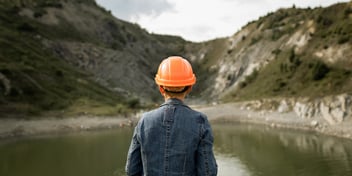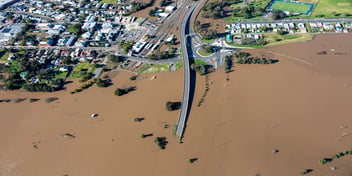How can we educate communities about water sensitive urban design?
As Australian cities become increasingly dense, water sensitive urban design (WSUD) initiatives can have a positive impact on communities and the environments around them.
The key is ensuring these initiatives are properly constructed and maintained, said Spiire Project Manager and Civil Engineer Alexandra Brown.
“If you’re going to build WSUD assets, you need to ensure people are empowered to know what they are and embrace them,” she said.
"Otherwise they’re just going to end up creating more issues.”
Brown is eager to enhance the community’s understanding of the urban water cycle, including the role of assets such as wetlands and rain gardens, which can help remove pollutants from runoff and assist with urban cooling. She will discuss this at the Australian Water Association's Young Water Professionals Conference in Brisbane next month.
“It blows my mind how many Australians don’t understand the urban water cycle,” Brown said.
“I hope to convey to people in my talk at the conference what we as an industry are doing to improve that, and how people can better engage with the water infrastructure we’re building.”
One of these initiatives is a training course, commissioned by Melbourne Water and developed by Spiire, which educates local councils about WSUD.
The request to develop the course came from Melbourne Water after councils began asking the utility for advice on constructing and maintaining WSUD assets. After fielding these requests for about two years, Melbourne Water landed on the idea to teach council teams, from maintenance personnel to designers and construction managers, to manage the construction process and care for the assets in-house, from beginning to end.
There have been more than 200 participants in the course since it launched three years ago, and Brown said it has had a huge impact.
“It’s really important to continue pushing water treatment in its natural form and in visible ways, so the community can see what’s happening with their water,” she said.
“If the council officers are out there maintaining these assets and being really proud of them, the community are more likely to ask questions and also become engaged.
“If they understand what these assets do, they’re more likely to realise their value and look after them and, in turn, maximise their potential.”

Water leader
A childhood spent at the beach sparked Brown’s passion for water, and she gravitated towards the sector as an engineering graduate.
This passion has grown throughout her career so far, and led to her being appointed as Practice Area Leader for the Integrated Water discipline at Spiire.
In this position, Brown collaborates with professionals across Spiire’s six offices who share her interest in and passion for water, sharing knowledge and skills to improve the way water is integrated into the business’ projects.
She said she enjoys working in the water sector because she can use both sides of her brain: the analytical and the creative.
“There’s a good balance between black and white engineering, where the answer is right or wrong, but there’s also an element of grey,” she said.
“This is where we can be lateral thinkers and design outcomes that are good for the community.
"It’s not just about building a functional asset that gets water from A to B, or treats water to remove 45% of nitrogen, or whatever the requirement might be.
“We strive for an outcome that satisfies the requirement, but also, and just as importantly, provides a sense of place.”
With the Australian water sector facing challenges including a changing climate and population growth, Brown said there are “incredible opportunities” for young people to get involved and come up with innovative solutions.
“We don’t have all the problems solved, and we have a lot of challenges, but we also have a lot of intelligent and passionate people in our industry,” she said.
“The world is your oyster if you’re a young professional in water; you can make what you want of it.”
Hear more from Alexandra Brown at the 2020 AWA/IWA Australia-New Zealand Young Water Professionals Conference, held in Brisbane from 12-13 March. To learn more and to register, click here.


